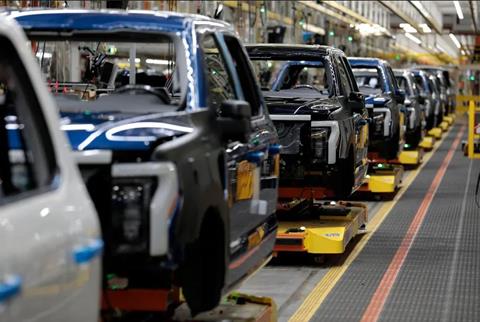Government approves E-Vehicle policy to promote India as a manufacturing destination for EVs
The EV Policy is a major step for prominent global EV manufacturers to play a pivotal role in India's automotive evolution.
In a bold stride toward the future, the Indian Government has unveiled an ambitious e-vehicle (EV) policy that sets the stage for transforming India into a prime manufacturing hub for electric vehicles. This initiative isn’t just about embracing new technology; it’s about leading a revolution in automotive manufacturing on the global stage.
policy that sets the stage for transforming India into a prime manufacturing hub for electric vehicles. This initiative isn’t just about embracing new technology; it’s about leading a revolution in automotive manufacturing on the global stage.
The policy is not just a call to action but an invitation for prominent global EV manufacturers to play a pivotal role in India’s automotive evolution. By investing in India’s burgeoning market, these manufacturers can bring cutting-edge technology directly to Indian consumers while bolstering the ‘Make in India’ initiative and stimulating a competitive yet healthy environment among EV manufacturers.
The policy is not just about setting a threshold but about the government’s commitment to supporting extensive manufacturing ventures. With a minimum investment threshold set at Rs 4150 crore (approximately USD 500 million) and no cap on the maximum investment, the government is ready to facilitate and support manufacturers in their ambitious ventures.
The timeline is precise yet ambitious. Companies are given a three-year window to establish manufacturing facilities and kick off commercial production of EVs. The policy stipulates a significant goal for these manufacturers—to achieve 50% domestic value addition within five years, with an interim target of 25% by the end of the third year.
In a move to sweeten the deal, the policy includes an appealing incentive for international players: the opportunity to import a limited number of cars at a reduced customs duty. Specifically, vehicles valued at a minimum of USD 35,000 can enjoy a custom duty of 15%, applicable for five years. However, this benefit hinges on the fulfilment of setting up manufacturing facilities within the initial three-year period.
Moreover, the policy meticulously ties import benefits’ scale to the investment’s magnitude. Under the favourable duty rate, a maximum of 40,000 EVs are permitted for import, provided the investment touches USD 800 million or more, with a yearly cap of 8,000 vehicles. Additionally, the flexibility of carrying over unutilized annual import limits to subsequent years adds a layer of practicality and encouragement for manufacturers.
Ensuring commitment and accountability, the policy mandates that companies’ investment pledges be backed by a bank guarantee equivalent to the custom duty foregone. This guarantee is a safeguard to be invoked if the companies fail to meet the predefined criteria of domestic value addition and minimum investment, as outlined in the policy guidelines.
This visionary policy is not just about economic growth and technological advancement but also about addressing broader environmental concerns. By increasing the production of electric vehicles, India is taking a significant step towards reducing its dependence on crude oil imports, decreasing its trade deficit, and mitigating air pollution—especially in its bustling cities. This, in turn, is expected to have a profound impact on public health and the environment, creating a sustainable path forward in India’s automotive evolution.
